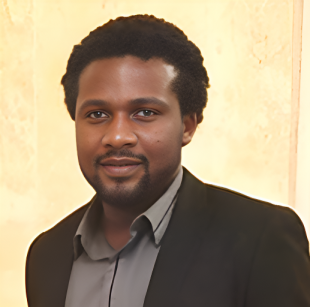Email:
Location:
Personal Page:
Biography:
Dr Emmanuel Epelle is currently a Chancellor’s Fellow at the University of Edinburgh, where he is primarily developing innovative hybrid oxidation technologies for decontaminating reusable medical devices and wastewater. His research features the application of mathematical modelling and laboratory experimentation to analyse the susceptibility of recalcitrant contaminants and microbes to new treatment methods. On a renewable energy front, Dr Epelle also explores the application of diverse modelling methods for assessing the viability of waste biomass-to-biofuel conversion processes and the subsequent utilisation routes.
Before his Chancellor’s Fellowship, he undertook a Knowledge Transfer Partnership with Advanced Clothing Solutions and the University of the West of Scotland, where he developed the UK’s first/patented automated process for decontaminating apparel and PPE on an industrial scale. Dr Epelle received his engineering training from the University of Edinburgh (PhD), Imperial College London (MSc), and the Federal University of Technology, Minna (BEng) and has 5 years of teaching experience in Chemical Engineering courses (mainly computational methods and separation processes). His research is driving the healthcare and energy sectors towards achieving the UN Sustainable Development Goals (3, 6 & 13), igniting positive change on a global scale.
Academic Qualifications:
- BEng in Chemical Engineering, 2014
- MSc in Earth Science and Engineering, 2016
- PhD in Chemical Engineering, 2020
Professional Qualifications and Memberships:
- Chartered Engineer (CEng)
- Member of the IET (MIET)
- Associate Fellow of the Higher Education Academy (AFHEA)
- Associate Member of the IChemE (AMIChemE)
Research Interests:
- Advanced oxidation processes for pollutant degradation (wastewater applications)
- Ozone stabilisation methods (including nanobubble generation and characterisation)
- Complex surface decontamination (for reusable medical device sterilisation)
- Computational Fluid Dynamics (for multiphase flow modelling)
- Mathematical optimisation (for rapid decision-making under complex constraints)
- Waste biomass to biofuel process simulation (including hydrogen production and storage)
- Oil and gas energy systems modelling (drilling and production)
Further Information:
Current PhD opportunities:
- Modelling gas-microdroplet interaction and dispersion for decontamination applications
- Application of hybrid oxidation methods for the decontamination of complex surfaces
I am open to accepting skilled PhD candidates, postdoctoral researchers, and academic/industrial visitors from diverse engineering fields to collaborate on any of the listed research interests above.
The following list of scholarship opportunities are available within the University:
- University of Edinburgh scholarships
- Principal's Career Development PhD Scholarships
- Centre for Doctoral Training (CDT) scholarships
- Edinburgh Global Research Scholarship
- CSC-Edinburgh scholarship



